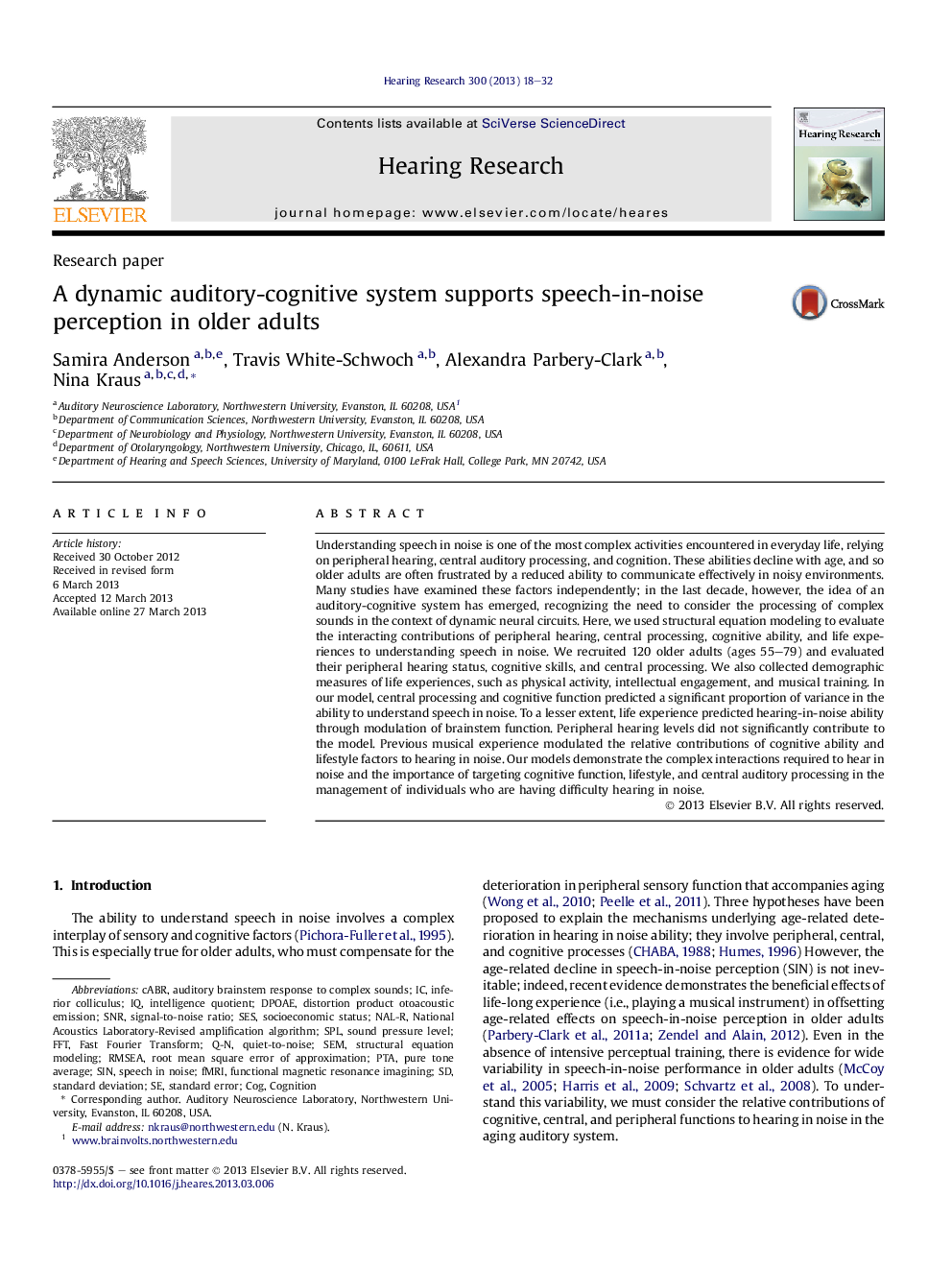| Article ID | Journal | Published Year | Pages | File Type |
|---|---|---|---|---|
| 4355176 | Hearing Research | 2013 | 15 Pages |
•Cognition plays a strong role in a model of speech-in-noise perception.•Central processing contributes to the older individual's ability to hear in noise.•Central processing is mediated by cognitive function and life experiences.•Early musical training leads to the use of different speech processing algorithms.
Understanding speech in noise is one of the most complex activities encountered in everyday life, relying on peripheral hearing, central auditory processing, and cognition. These abilities decline with age, and so older adults are often frustrated by a reduced ability to communicate effectively in noisy environments. Many studies have examined these factors independently; in the last decade, however, the idea of an auditory-cognitive system has emerged, recognizing the need to consider the processing of complex sounds in the context of dynamic neural circuits. Here, we used structural equation modeling to evaluate the interacting contributions of peripheral hearing, central processing, cognitive ability, and life experiences to understanding speech in noise. We recruited 120 older adults (ages 55–79) and evaluated their peripheral hearing status, cognitive skills, and central processing. We also collected demographic measures of life experiences, such as physical activity, intellectual engagement, and musical training. In our model, central processing and cognitive function predicted a significant proportion of variance in the ability to understand speech in noise. To a lesser extent, life experience predicted hearing-in-noise ability through modulation of brainstem function. Peripheral hearing levels did not significantly contribute to the model. Previous musical experience modulated the relative contributions of cognitive ability and lifestyle factors to hearing in noise. Our models demonstrate the complex interactions required to hear in noise and the importance of targeting cognitive function, lifestyle, and central auditory processing in the management of individuals who are having difficulty hearing in noise.
